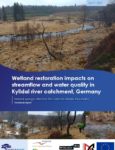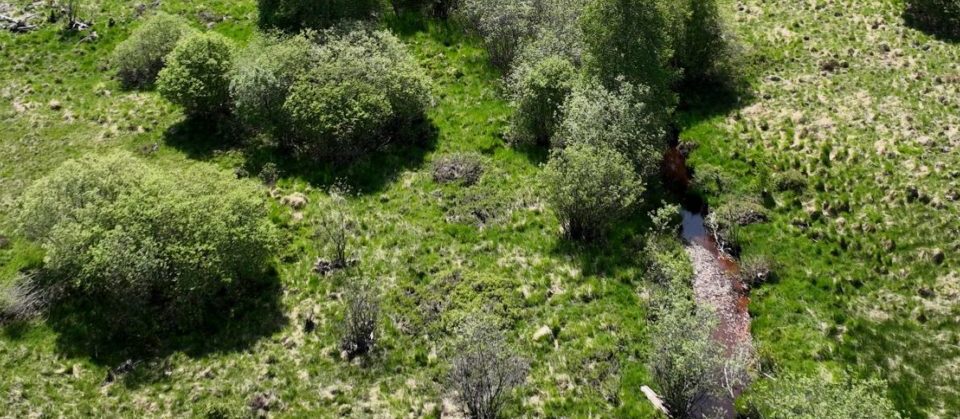This EU JRC-funded study examined the potential for natural retention in an upper catchment of the Rhine River as a nature-based solution to reduce flood peaks and nutrient loads.
Model calculations were made to show the impact of wetland restoration measures in the German Middle Mountains on micro-scale in the Rhine River Basin, focusing on changes in river flow patterns, nutrient loads and concentrations. A SWAT+ model was used to calculate the hydrological effects of wetland restoration on streamflow, nutrient loads and concentrations in three micro-catchments of the Rohrbach and Lewertbach streams in the larger Kylldal river catchment at Steinebrück in the German Middle Mountains.
The calculations showed that peak flows in response to high winter precipitation events became attenuated after wetland restoration, occurring at lower frequencies than in the current reference situation. The delays in runoff caused by the wetland restoration caused an increase in median flow rates from the catchments, as the recession flow following the peaks was increased.
Loads of total N and total P were lower after wetland conversion, but concentrations of N and P remained similar or increased in the winter season. This study shows that wetland restoration has positive impacts on the flow regime and river water quality. Natural sponge effects in the German Middle Mountains

